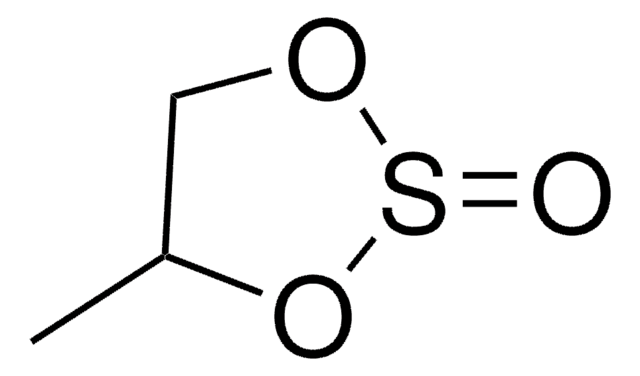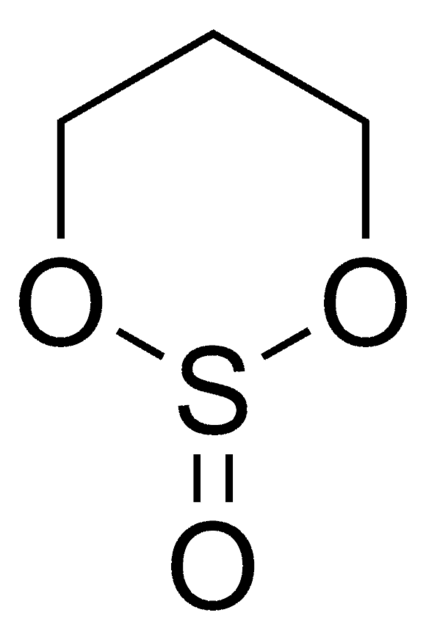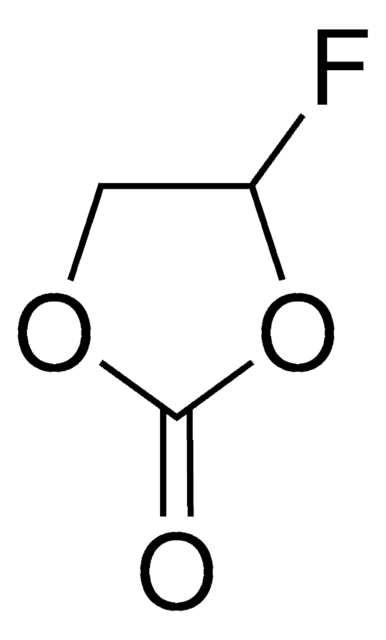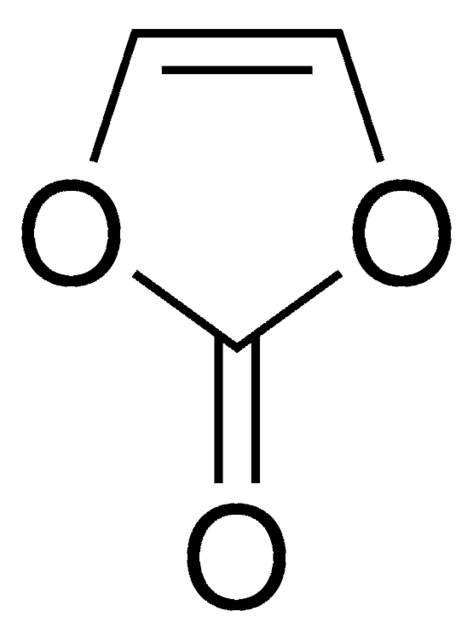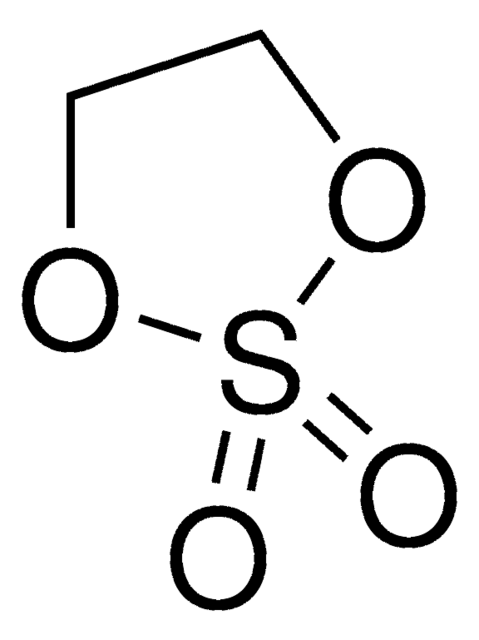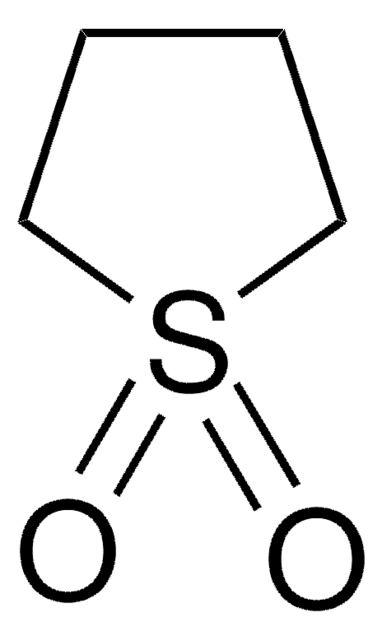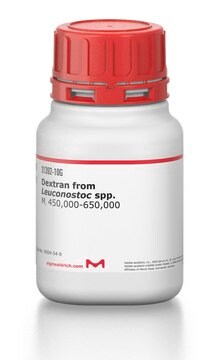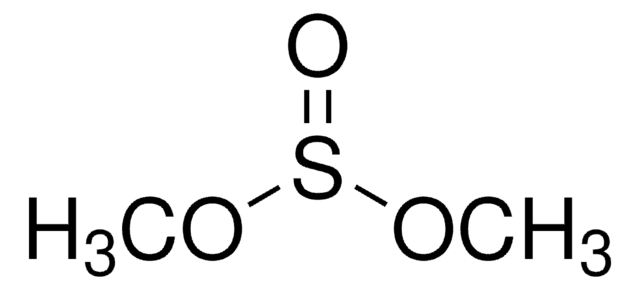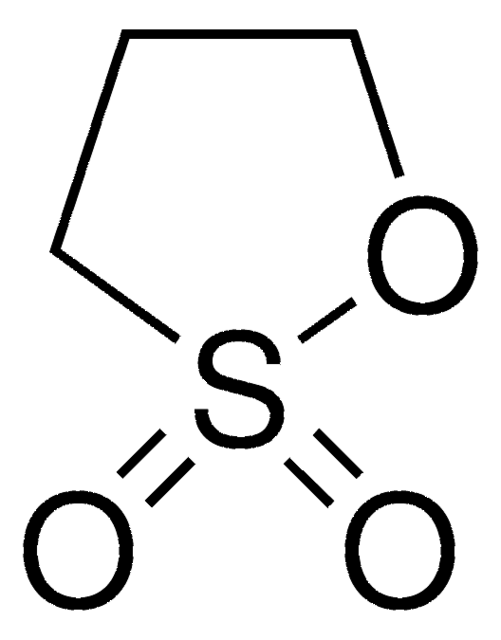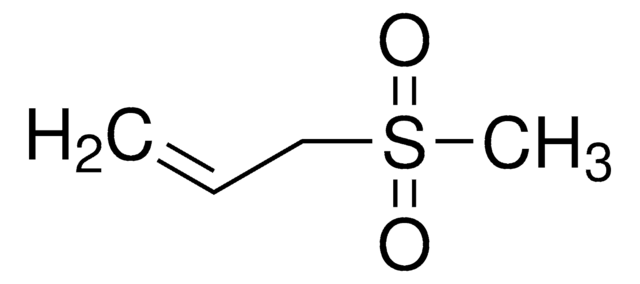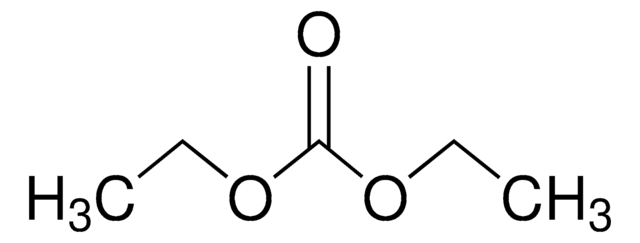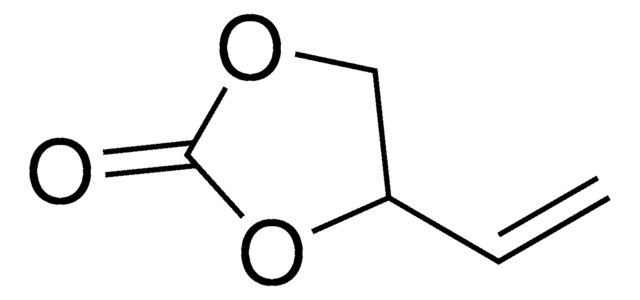774251
Ethylene sulfite
≥99.0%
Synonym(s):
1,3,2-Dioxathiolan-2-oxide, Cyclic ethylene sulfite, ES, Glycol sulfite
About This Item
Recommended Products
Quality Level
Assay
≥99.0%
form
liquid
greener alternative product characteristics
Design for Energy Efficiency
Learn more about the Principles of Green Chemistry.
sustainability
Greener Alternative Product
refractive index
n20/D 1.445 (lit.)
n20/D 1.447
bp
159.1 °C (lit.)
density
1.426 g/mL at 25 °C (lit.)
1.433 g/mL at 25 °C
application(s)
battery manufacturing
greener alternative category
, Enabling
SMILES string
O=S1OCCO1
InChI
1S/C2H4O3S/c3-6-4-1-2-5-6/h1-2H2
InChI key
WDXYVJKNSMILOQ-UHFFFAOYSA-N
Looking for similar products? Visit Product Comparison Guide
General description
Application
related product
Storage Class Code
10 - Combustible liquids
WGK
WGK 3
Flash Point(F)
197.1 °F
Flash Point(C)
91.7 °C
Choose from one of the most recent versions:
Already Own This Product?
Find documentation for the products that you have recently purchased in the Document Library.
Customers Also Viewed
Articles
Dr. Schmuch, Dr. Siozios, Professor Dr. Winter, and Dr. Placke review the challenges and opportunities of nickelrich layered oxide cathode materials. They discuss production processes for the layered oxide cathode materials as well as their chemistry and morphology.
The critical technical challenges associated with the commercialization of electric vehicle batteries include cost, performance, abuse tolerance, and lifespan.
Li-ion batteries are currently the focus of numerous research efforts with applications designed to reduce carbon-based emissions and improve energy storage capabilities.
Lithium-ion batteries (LIBs) have been widely adopted as the most promising portable energy source in electronic devices because of their high working voltage, high energy density, and good cyclic performance.
Our team of scientists has experience in all areas of research including Life Science, Material Science, Chemical Synthesis, Chromatography, Analytical and many others.
Contact Technical Service
